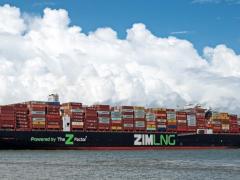Governments across Africa are tightening compliance requirements for imported goods – particularly regulated products such as electrical appliances, building materials, food and chemicals. The focus is shifting towards stricter pre-shipment conformity assessments, with Pre-Export Verification of Conformity (PVoC) programmes expanding rapidly across the continent. At the same time, the adoption of digital certification platforms is accelerating trade by reducing paperwork and processing times. In response, SGS South Africa has expanded its PVoC services to cover more African markets frequented by South African exporters, while investing in accredited local laboratory testing capabilities to streamline the issuance of Certificates of Conformity (CoCs). According to Johan Eksteen, divisional manager: connectivity & products at SGS South Africa, these developments are helping importers and exporters avoid costly delays at border posts and ports. “As governments strengthen conformity requirements across Africa, the need for reliable, accredited verification partners has never been greater,” said Eksteen. “By expanding our PVoC services and investing in local testing capabilities, we’re helping traders move goods more efficiently and with confidence. Digital certification is transforming the process – cutting turnaround times, improving transparency and ultimately supporting smoother cross-border trade.” He said non-compliant goods entering African markets remained one of the biggest challenges, creating safety risks and unfair competition. “For traders, the difficulty often lies in the cost and time delays linked to documentation and testing,” Eksteen told Freight News. “Ensuring exporters are well prepared before shipment is key to reducing these bottlenecks. South Africa’s reliance on imports means there is a constant need for conformity verification services. There is growing potential to integrate digital platforms that connect testing, inspection and certification directly with customs clearance systems, significantly shortening turnaround times. According to Eksteen, overall import volumes into South Africa remain steady, but shifts occur sector by sector. “Demand for renewable energy equipment and electronics has grown, while agricultural inputs fluctuate with crop cycles,” he said. He added that currency volatility, global supply chain disruptions, and external pressures such as Red Sea shipping risks, changing tariffs and shifting trade agreements all continued to impact timelines and costs. These factors, said Eksteen, underscored the importance of risk management through early compliance checks, pre-shipment testing and robust certification. For South African traders, ensuring compliance with destination country regulations is now more critical than ever. LV
Conformity requirements demand verification experts October 2025
Comments | 0












